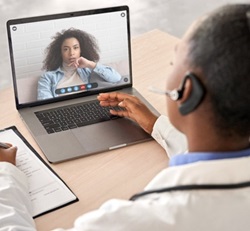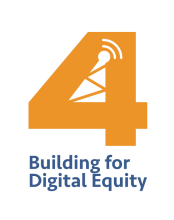Digital Inclusion Advocates Talk Telehealth and Broadband Access
In the latest episode of the Building for Digital Equity Podcast, ILSR's Digital Equity Coordinator Jordan Pittman sits down with Dana Northcraft, Natalie Birnbaum, and Emily Schacter from the Reproductive Health Initiative for Telehealth Equity and Solutions (RHITES).
The trio of guests from the Washington D.C.-based nonprofit begin by connecting the dots between broadband access and the emergence of telehealth as a way to improve health outcomes and deliver significant healthcare cost-savings.

From there, they focus on "maternity and reproductive healthcare deserts," as well as the language and affordability barriers that severely limit the ability of many communities and financially-strained households to reap the benefits of telehealth.
The episode concludes with a call to action as Dana, Natalie, and Emily make the case for why access to broadband should be seen as not just a critical utility for participation in a digital world, but as an important human right essential for achieving better health outcomes.
Tune in below:
Inline image of telehealth consultation courtesy of RHITES website




